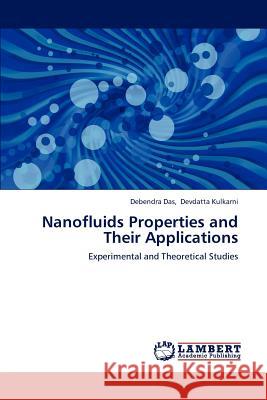Nanofluids Properties and Their Applications » książka
Nanofluids Properties and Their Applications
ISBN-13: 9783659166099 / Angielski / Miękka / 2012 / 196 str.
Viscosity, heat transfer and pressure loss measurements of several nanofluids, which are suspensions of nanoparticles less than 100 nm size, in base fluids, e.g. ethylene or propylene glycol and water mixture are presented. The nanoparticles considered here are oxides of aluminum, copper and silicon. Effects of thermophysical properties of nanofluids on the Prandtl number and the Mouromtseff number have been analyzed in detail. Authors show that the Prandtl number increases with increasing particle volumetric concentration, which in turn increases the convective heat transfer coefficients of the nanofluids. Experiments on nanofluids in the turbulent regime show the enhancement of convective heat transfer and pressure loss with an increase in nanoparticles volume concentration. The authors prove that application of nanofluids for heating buildings could result in reduction of volume flow rate of heat transfer fluids, heat exchanger size, and the pumping power. Experiment on a diesel electric generator confirms an increase in the thermal efficiency of the heat recovery from the engine radiator for nanofluids compared to the conventional coolant.
Viscosity, heat transfer and pressure loss measurements of several nanofluids, which are suspensions of nanoparticles less than 100 nm size, in base fluids, e.g. ethylene or propylene glycol and water mixture are presented. The nanoparticles considered here are oxides of aluminum, copper and silicon. Effects of thermophysical properties of nanofluids on the Prandtl number and the Mouromtseff number have been analyzed in detail. Authors show that the Prandtl number increases with increasing particle volumetric concentration, which in turn increases the convective heat transfer coefficients of the nanofluids. Experiments on nanofluids in the turbulent regime show the enhancement of convective heat transfer and pressure loss with an increase in nanoparticles volume concentration. The authors prove that application of nanofluids for heating buildings could result in reduction of volume flow rate of heat transfer fluids, heat exchanger size, and the pumping power. Experiment on a diesel electric generator confirms an increase in the thermal efficiency of the heat recovery from the engine radiator for nanofluids compared to the conventional coolant.











